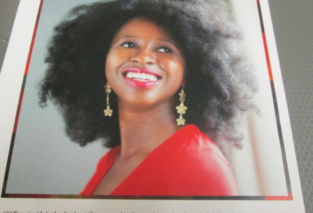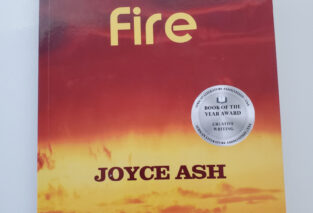On Wednesday, August 12, 2015, I joined a crowd of book lovers at the Sawa Novotel in Douala for the launch of Professor Tazoacha Asonganyi’s controversial book, Cameroon: Difficult Choices in a Failed Democracy (Memoir). I was allowed a few minutes to give my views on the book and this is what I said.
Ladies and Gentlemen:
A few weeks ago, I received a call from Professor Asonganyi in which he told me he had just published his memoir and would like me to say a word or two during the launching ceremony he planned for Douala. He had a copy of the book with him in Yaoundé and would be sending it to me in Douala through one of the travel agencies. Which one did I prefer?
I told him I would be in Yaoundé within a week and that I would give him a call once I got into the city. That sounded perfect to him and a few days later we met at the lobby of the hotel I was in. No sooner had we taken our seats than he pulled out two copies of the book in question: one in English and the other in French.
I had thought he had compiled the numerous essays on various issues he has been writing in the media. In fact, it is rare for a month to go by without Professor Asonganyi reacting to one thing or another in the written, spoken, audiovisual or social media. Great then was my surprise when he placed before me an over 350-page book with tiny prints and studded with black and white pictures of family and political friends and foes alike.
I gasped in surprise. Where did he find the time to produce such prolific work and still find time for his academic work? He merely laughed and said where there is a will there will always be a way.
My admiration for the man’s prolific contribution to knowledge surged as I turned this book back and forth in my hand. I said I would willingly share my views on it during the book launching in Douala.
Mr. Chariman, Ladies and Gentlemen, I am perhaps going to disappoint some of you this afternoon because I am not going into the nitty gritty of this book with its 28 chapters and four appendices. I am not going to highlight the numerous and interminable internal conflicts, sometimes degenerating into intense acrimony, within the Social Democratic Front (SDF) Party, with the SDF Chairman, Ni John Fru Ndi, or with the other stalwarts of that party to which Professor Asonganyi and his family have dedicated a good part of their life and resources. That will be for you to discover once you have your own copy of the book. I wish every Cameroonian were like you. The fact that you are here this afternoon is a clear indication that you are book lovers. There is a saying that the best way to hide anything from a Cameroonian is to write it in a book. It will go unnoticed as few Cameroonians ever bother to read a book, outside those prescribed to particular groups, like students. However, if you put the same information inside the cork of a beer bottle, the starkest illiterate in the land will surely discover it before the day is over; which is a not-too-flattering observation on the sanity of our nation that is literally soaked in beer and alcohol.
Writing simply
What I always find fascinating with Professor Asonganyi’s writing – be it the numerous essays he has written on one aspect or another of our country and now this book – is the simplicity of his style. I agree with the blurb writer of this book who says that this memoir is “beautifully simple in painting a mesmerizing account of Cameroon’s faltering democracy”. The two words “beautifully simple” are an apt description of the entire book; and there is beauty in simplicity in writing.
My emphasis will therefore be on beauty of expressing oneself in clear, straightforward, correct, and concise English, which Professor Asonganyi masters so well. Even though I said I was not going into any detail, I will, however, linger on chapters 1, 2 and 3, the autobiographical section. In them, the author recalls scenes from his childhood days, from his early school years in his native Fontem, the memories of his parents, brothers and sisters and extended family relations. The easy flow of his narrative carries the reader along to share with him the intense emotions he feels as memories of his family, his school friends, his friends in Sasse College, his adolescent years in CCAST Bambili, and his university days in Yaoundé come flooding his mind. A smile comes to the reader’s face as he watches him court the young lady, who was to become his wife and the mother of his children. She plays hard to get and when Prof finally gathers enough courage to pop the question the answer does not come right away. In despair, he enlists the help of his equally-frustrated future brother-in-law. The positive answer, however, comes when she wants, not when they think she should give it. Tough lady!
The gnawing sense that the less fortunate, the weak and the marginalized should be given a chance in life came early to Professor Asonganyi. When his father, on his deathbed, bequeathed his throne to the young Asonganyi, he willing ceded it to his brother, who, unlike him, did not have a chance to further his education.
Let me again say why I am so passionate about writing that is simple and clear, which, as I mentioned earlier, is the hallmark of Professor Asonganyi’s writing. And he finds himself in a class of such heavyweights as the inimitable Nigerian writer, Chinua Achebe, Cameroon’s own Professor Bernard Nsokika Fonlon and the great Madiba Nelson Mandela, to name just a few writers who greatly impress me with their simple writing style. The advantage of writing simply is that the words do not interfere with the message; they instead bear the message on their shoulders, thus enabling it to stand out neat and clear for all to see.
Personal experience
Let me share with you a personal experience in this domain of simple writing. Back in the mid-90s, Christian Cardinal Tumi, the then Archbishop of the Metropolitan See of Douala, invited me to join the editorial team of L’Effort camerounais. He wanted English in the paper and called on me to join the team. I was asked to write an editorial for the first bilingual issue of the paper. It took me about a week to write it. I just wanted it to be the best thing I had ever written.
I took it to the Cardinal and watched him read it. I expected to see him smile and nod his head in approval but he did none of that; instead he kept an enigmatic smile on his lips till the end, then he looked at me and asked, “who are you writing for?” I was stunned by his question and I quickly answered that I was writing for the readers of L’Effort camerounais. His answer nearly floored me. “No,” he said, “you’re writing for your university people, but I want you to write for the people I preach to!” I asked who those people were. “I preach to people with the level of GCE or BAC and below, not your university type”. That shocked me profoundly. Here I was, bathing in praises from everyone who read me in the papers, and I wrote quite profusely in those days. There, I was being told that I should come down from my intellectual pedestal and address the ordinary folk. It was a lesson in humility which I am still struggling with till today. It is easy to throw big words on paper and impress others, but when it comes to writing simply and clearly, it takes long periods of practice. I am still very conscious of the difficulty of doing what Professor Asonganyi has done here: write simple, clear, concise, straightforward English which can be understood by many.
Professor Asonganyi’s writing will forever remain fresh in our minds largely thanks to his beautifully simple style; not simplistic, mind you; simplistic reflects childishness, which is far from him. He is discussing serious issues concerning the well-being of our people; what he calls “a failed democracy”. It’s serious stuff but it is expressed in simple terms, which makes it all the more memorable. Congratulations, Prof!


